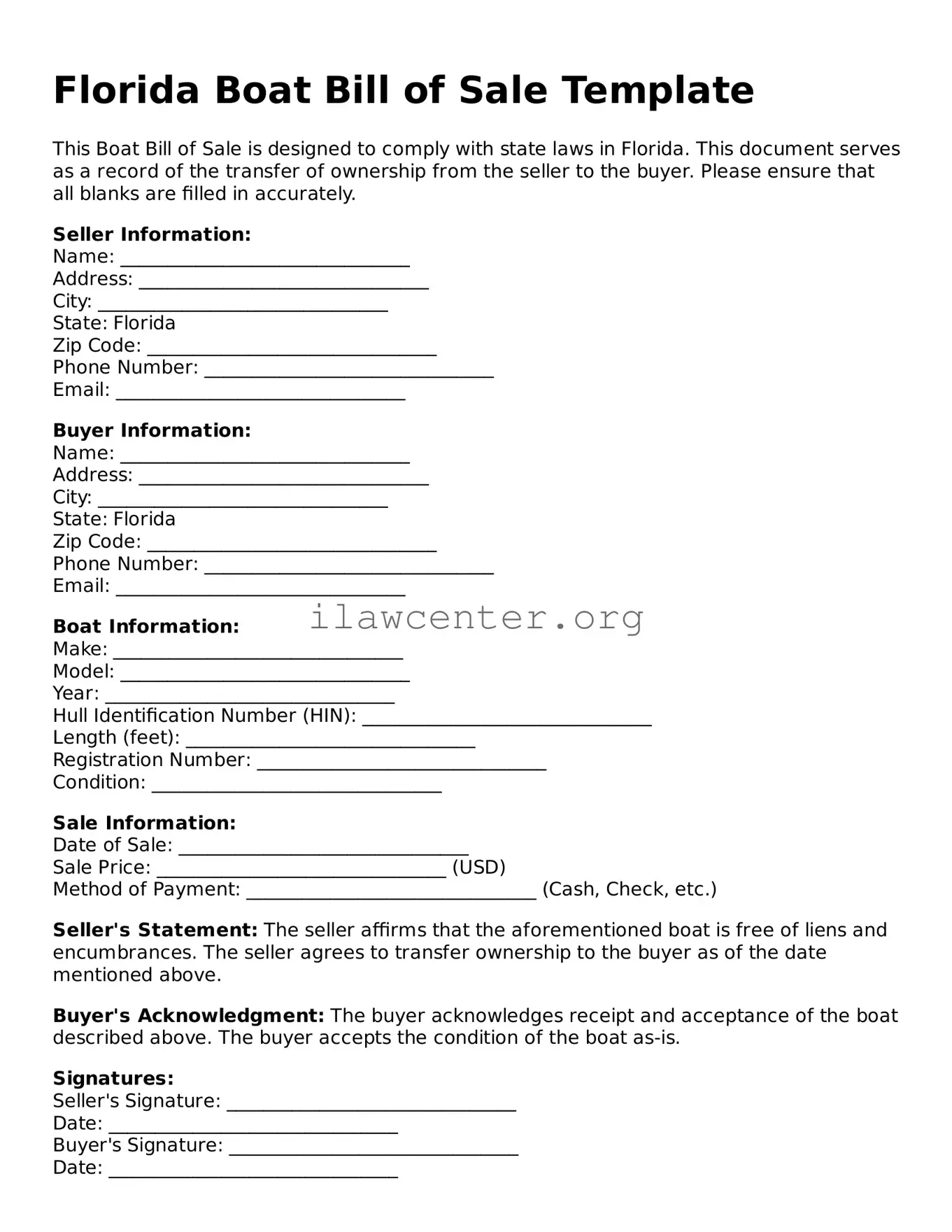What is a Florida Boat Bill of Sale?
A Florida Boat Bill of Sale is a document that records the transfer of ownership of a boat from one party (the seller) to another (the buyer). It serves as proof of the sale and may be required for registration purposes with the Florida Fish and Wildlife Conservation Commission. This form helps protect both parties by detailing the terms of the agreement.
Do I need a Bill of Sale to sell a boat in Florida?
Yes, while it may not be legally required for every transaction, having a Bill of Sale is highly recommended. It provides a clear record of the sale, including the boat's description, sale price, and the names of both the seller and buyer. This document can protect both parties in case of future disputes or claims.
What information should be included in the Bill of Sale?
The Bill of Sale should include the following information: names and addresses of the buyer and seller, a detailed description of the boat (including the make, model, year, and hull identification number), the purchase price, the date of sale, and any conditions associated with the sale. It’s also helpful to include signatures from both parties to confirm the transaction.
Is a Florida Boat Bill of Sale required to register a boat?
Yes, if you plan to register the boat with the Florida Fish and Wildlife Conservation Commission, you will usually need to provide a Bill of Sale. This document verifies ownership and the details of the transaction. Keep in mind that registration requirements may vary, so check with local authorities for specific rules.
Can I create my own Boat Bill of Sale?
Absolutely. While there are templates available online, you can create your own Bill of Sale as long as it includes all necessary information. Ensure that it is clear, concise, and includes the required details to avoid any misunderstandings later.
Are there any specific laws regarding the Bill of Sale for boats in Florida?
Florida does not have strict laws dictating the exact format of the Bill of Sale but does require certain information. It's important to ensure that the document is complete and accurate to prevent legal issues. It's also wise to keep a copy for your records, as it may be needed in future transactions or for legal assurances.
What if the boat is financed or has a lien?
If the boat is financed or has a lien, it’s crucial to settle any outstanding debts before transferring ownership. Make sure to contact the financing company to understand how to handle the transfer properly. The Bill of Sale should indicate whether the vessel is sold free of any liens or if the buyer is assuming responsibility for the existing financing.
